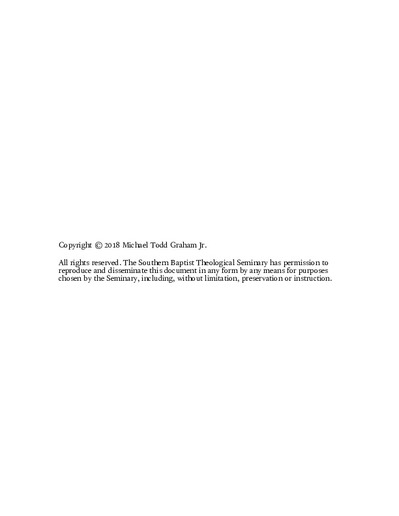The Discourse Function of Koine Greek Verb Forms in Narrative: Testing Current Proposals in the Book of Judith
Subject
Bible. JudithGreek language, Biblical--Grammar
Greek language, Biblical--Discourse analysis
Abstract
The objective of this dissertation is to test some major theories on the discourse function of the Greek indicative verb-forms in narrative. Since the publication of Stanley Porter and Buist Fanning’s doctoral dissertations, verbal aspect has been a major area of research among scholars. Although the debate and research concerning the aspect of Greek verbs continues to be at the forefront of Greek grammatical studies, the question that begs to be answered is whether their answers can satisfactorily account for the varied verb-forms throughout the entirety of a historical narrative. This dissertation seeks to answer this question by testing current proposals on the discourse function of Greek indicative verb-forms within the narrative of Judith.
Chapter 1 introduces the thesis of the dissertation, surveys the literature related to Greek grammar, and discusses the need to focus on discourse grammar. Chapter 2 surveys the literature related to discourse grammar, provides a methodology, and discusses the rationale for the selection of the book of Judith. Chapter 3 tests the function of the aorist and the imperfect within the book of Judith. Specifically, it tests the proposal—unless intentionally marked, the aorist is used to describe mainline events, it provides the foundation for the narrative, and thus moves it forward. Whereas the imperfect is used with non-events, giving descriptive or background information, rather than moving it forward. Chapter 4 examines the function of the present within the narrative of Judith. Namely, it evaluates Runge’s rejection of Stanley Porter’s claim that the present indicative verb-form is semantically marked for prominence. Chapter 5 observes the function of the perfect within the narrative of Judith. Specifically, it evaluates the thesis—the perfect is used to show the relevance of the action, idea, or situation to the current discourse. Chapter 6 provides a concluding summary of each chapter in this dissertation and suggests areas for fruitful future research.

